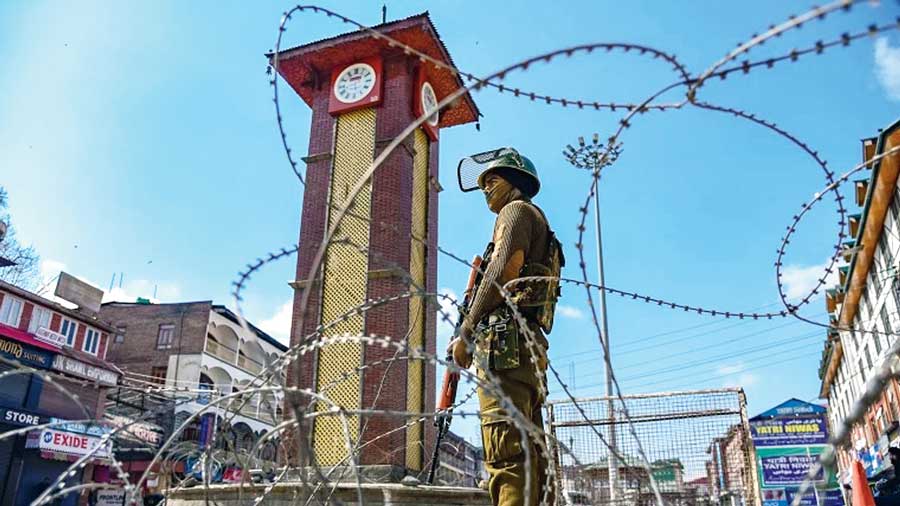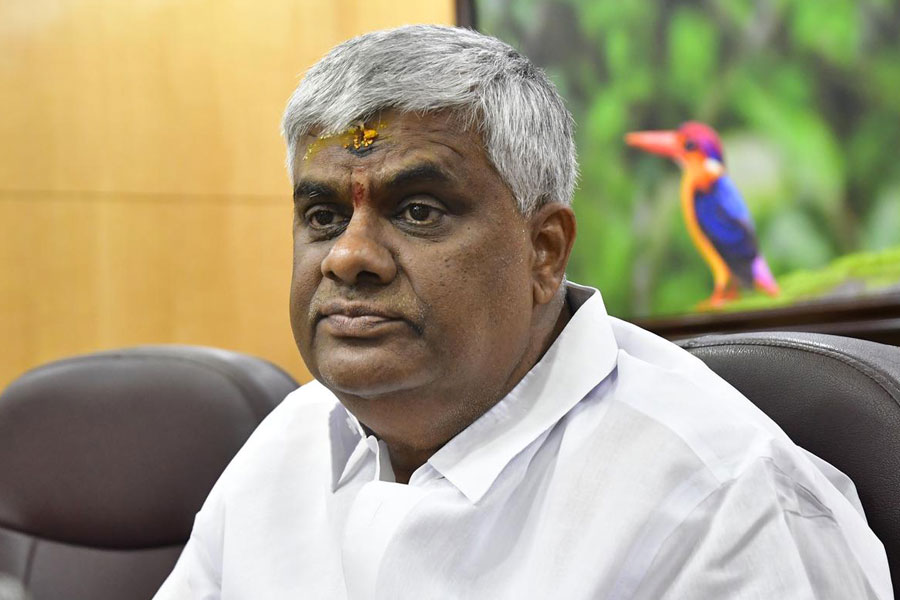It is striking that even though more than one hundred years have passed since Albert Einstein discovered the Theory of Relativity, underscoring the relativity of time, human civilization is yet to earmark an ‘International Day for Time’ or invent some such equally silly moniker in reverence of Chronos. This absence of ceremony in honour of Father Time, ironically, reiterates the supposed infallibility of Einstein’s theory. A ubiquitous celebration of the bearded man bearing a scythe and an hourglass — an eighteenth-century sculpture by the German artist, Ignas Günther, portrayed time with these tools — is not logical because, as Einstein says, the human experience of time is variable.
Or is it?
December is the month in which humanity, it can be argued, experiences time in a discernibly unvariegated form. This is because the final month of the year is associated with the turning of time, seasons, light towards closure, finality and, in this second year of the pandemic, endings.
The public discourse on time has been markedly metaphysical, tinged with the spirit of philosophical enquiry into such ideas as mortality. In the layman’s eye, time can acquire an equally abstract dimension in science: consider the complicated possibility of time-travel, a notion that Einstein reasoned is plausible. These illuminating, but also dense, reflections on time have undermined a distinct, but relatively under-examined, aspect: time’s political dimension. Astoundingly, evidence of the weaponization of time by the State hangs from our walls, or stands erect in India’s chowks. For the clock, or the clock tower, David Rooney writes in About Time, is the perfect embodiment of time’s political character, manifest in the complicity of these time-keeping devices in nudging civilians towards a clock-like order.
Scorn and amusement had accompanied the unveiling of the Bangali Big Ben in the South Dum Dum municipality some years ago: this Smaller Ben, the intelligentsia argued, was a crude expression of Mamata Banerjee’s ambition to transform Calcutta into London. What went unnoticed was that Didi’s artefact fits snugly into an entire historical tradition that has imagined clock towers and the seemingly benign clock as potent symbols of the State’s control of public life and, one can add, liberty — “[T]he history of clocks,” Rooney writes, can be used to “look at capitalism, the exchange of knowledge, the building of empires…” and “morality — right and wrong — as well as identity — who we are…”.
The proof that Rooney accumulates, of the clock’s mediation of capital, knowledge, empire, morality, identity — the building blocks of power and politics — is formidable.
The triumphant installation of a sundial in ancient Rome, the ornate dials in Athens’s markets or the water clocks that preceded the sundial, the drum towers in medieval Oriental kingdoms that boomed to announce nocturnal curfews, the raj’s clock-tower projects in colonized India that came to life after the brutal suppression of the uprising in 1857 in Delhi, Lucknow, Ajmer, the clocks of Tiananmen Square, and even Bangali Ben — each artefact ought to be viewed as an instrument that facilitates the State’s regulation of civilian life.
What must not go unnoticed is that the relationship between time and its politicization by extraneous agencies is not reciprocal; time itself, much like public life, has been rendered vulnerable by power. Consider time’s standardization and the consequent disappearance of local time zones — and the eco-systems that they sustained — as a result of the political, economic and moral imperatives that led to the genesis of standard time in nineteenth-century Britain. Here’s Rooney on time’s capitulation to power — standardized time “allows those in power to control… when you wake up… how long you are allowed to work… what is good or bad behaviour… Each time you fight your way to work on a crowded bus… you are obeying electric clocks… you are obeying the commands of the government, which uses time to tell you how you should behave.”
Little wonder then that clock towers were once the favoured targets of anarchist movements. The Royal Observatory in Greenwich — the regulator of global standard time — had survived a bombing in 1894.
What Rooney makes apparent, convincingly so, in his investigation of the State’s incursion on time is a signature hubris. Be it an ancient republic — Rome — a medieval province — Chioggia, ravaged by war and epidemic, raised a clock tower nonetheless — an idiosyncratic monarch — Jai Singh built his observatories to mark his reign in celestial time — or the imperium — the British raj — the reimagination of time as political capital necessitated the insulation of the representatives of State power — monarch, republic, empire — from the moral code.
But the moral, indeed civilizational, risks and even futility of such insularity, of the eclipse of conscience, has been marked already— by the sands of time. The perfect artistic expression of time’s warning against societal conceit and excess, Rooney points out, is a painting by Ambrogio Lorenzetti in fourteenth-century Sienna. In it, one can see Temperance, an allegorical figure representing a medieval virtue, gesturing mankind and our gaze towards the hourglass that she holds in one of her hands.
This medieval painting has a message for modernity.
As the planet hurtles towards an environmental Armageddon — the consequence of collective hubris, greed and myopic politics and policy — there is an urgent need to assimilate Temperance’s vision of moderation, frugality, fraternity into a civilizational ethos that has been corroded by profligacy and excess.
A glance at the clock, or at our sleek wristwatches, would remind us that time is running out.
uddalak.mukherjee@abp.in










